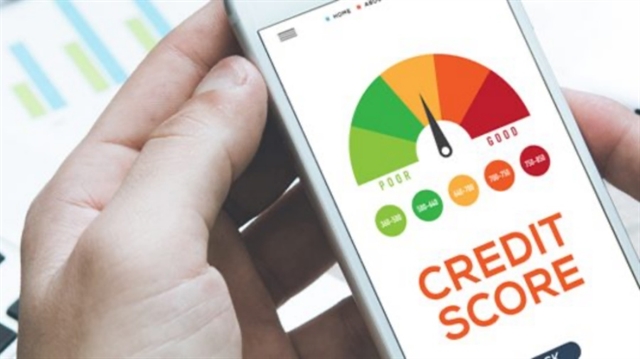 Economy
Economy

 |
| A customer checks their credit scoring by way of their mobile phone. Credit scoring has remained an unpopular concept among domestic users. Photo moneyhub.vn |
HÀ NỘI — The State Bank of Vietnam (SBV) has proposed using credit scoring to better manage the banking sector and promote the development of finance and fintech companies.
It is contained within a recently released draft decree, on regulating from the sandbox mechanism in the banking sector.
According to the SBV, though the Vietnam National Credit Information Center (CIC) introduced the first credit scoring model according to international standards in 2015, it has remained an unpopular concept among domestic users. Therefore, the draft policy is aimed at helping fintech companies provide credit scoring solutions with a better development foundation.
Credit scoring is considered a useful tool for lenders, such as banks, finance companies and peer-to-peer lending companies (P2P) as it is a statistical analysis performed by lenders and financial institutions to determine the creditworthiness of a person or a small, owner-operated business. Credit scoring is used by lenders to help decide whether to extend or deny credit while the score can impact customers’ ability to qualify for financial products like mortgages, auto loans, credit cards and private loans.
According to Dr Châu Đình Linh, a lecturer at HCM City Banking University, the credit scoring model is a tool that helps lenders know when to lend, in what amount and what strategies to build to increase profits while still managing lending risks.
Developing an effective credit scoring tool would bring many benefits to lenders, such as reducing the cost of credit analysis and appraisal, better assessing the insolvency of customers to make more accurate credit decision, reducing credit decision-making time and minimising bad debts and losses in credit activities.
In addition, credit scoring has many other direct benefits such as improving capital flow, improving liquidity, understanding customer behavior, diversifying financial products and determining banks' credit risk appetite.
According to Linh, potential risks of the consumer lending market are very high as it often involves small loans with no collateral.
Linh believes that credit scoring through the sandbox mechanism for fintech companies is the right decision to perfect the legal mechanism to develop the consumer lending market, especially P2P lending of fintech companies, as it will minimise default risk and lead to credit safety, which will ensure financial and fintech companies to have a greater probability of finding sustainable profits.
However, Dr. Nguyễn Hữu Huân, lecturer at HCM City University of Economics, noted the management authorities should carefully select companies that are allowed to participate in the credit scoring sandbox to avoid the establishment of too many credit rating organisations, causing information confusion in the market.
“The sandbox mechanism must clearly mention the criteria for selecting credit scoring companies. Organisations that are chosen to participate in the sandbox must be reputable and capable of fulfilling responsibilities and ensure ethical risk issues,” Huân said.
In Việt Nam, in addition to using CIC's credit score as an important reference, commercial banks, financial and fintech companies currently use many different methods to score credit while there is a growing trend for using AI and big data in setting a credit score. — VNS




